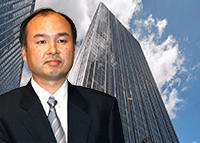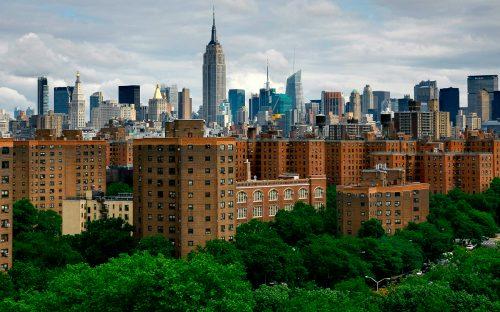Fortress Investment Group has played a key role in some of real estate’s biggest — and most audacious — deals.
From Harry Macklowe’s infamous $7 billion purchase of a chunk of the Equity Office Properties portfolio, to the $5.5 billion sale of Stuyvesant Town–Peter Cooper Village, to backing Trump Tower Chicago, the private equity firm earned a reputation for getting involved in hairy projects that scared others away.
Read more


Now, with SoftBank considering a sale of the firm, a new chapter might await Fortress, which was founded in 1998 by Wes Edens, Rob Kauffman, and Randal Nardone and has $53 billion in assets under management.
Masa Son’s SoftBank had taken the publicly listed private equity firm private in 2017 in an all-cash deal worth $3.3 billion with the aim of integrating the company into its Vision Fund. But as early as 2021, SoftBank was reportedly open to a sale of the company, which is run as a fully independent subsidiary as per an agreement with the Committee on Foreign Investment in the U.S.
Here’s a look at some of Fortress’ biggest real estate hits:
Equity Office Properties
When Macklowe made a whirlwind play to buy 7 million square feet of offices from Blackstone Group in 2007, he put up just $50 million of his own money and borrowed $5.8 billion from Deutsche Bank.
That left him short by $1.2 billion, which he needed to raise in two weeks.
“It was an absurd amount of money to come up with so quickly. Even in the high-flying world of big-city real estate, this was shylock territory,” author Adam Piore wrote in his book, The New Kings of New York. “But both [Fortress’ Steve] Stuart and Macklowe knew that Fortress was one of the very few players who might consider it.”
Fortress agreed to lend the money at a sky-high interest rate – north of 15 percent – and with personal guarantees from Macklowe. When Lehman Brothers collapsed and the market seized up, Macklowe defaulted on his loans and lost most of his office properties, including his beloved GM Building.
More recently, Fortress lent Macklowe $192 million to refinance his “Tower Fifth” development site, where he plans to build a 1 million-square-foot office tower that would rise 1,500 feet into the sky.
Stuy Town

Stuyvesant Town (Getty)
When Tishman Speyer and BlackRock fell behind on their $3 billion mortgage in 2010, the massive complex, which has over 11,000 apartments, fell into the hands of special servicer CWCapital, which got to work preparing a foreclosure auction.
Fortress, looking to expand its reach into real estate, bought CWCapital later that year for an undisclosed price. CWCapital and Fortress reportedly reaped more than $45 million in fees over six years and $566 million in default interest by the time Blackstone bought Stuy Town in 2015.
Times Square
The private equity group is backing two transformative development projects at the Crossroads of the World.
Fortress partnered with L&L Holding at the $2.5 billion TSX Broadway (aka 1568 Broadway), where the developers raised the landmarked Palace Theatre 30 feet to make way for their retail and hotel development. The 470-foot-tall, 669-key tower is set to open next year.
Right next door, Fortress also partnered with Maefield Development on the $1.5 billion Edition Hotel project at 20 Times Square. That tower has been mired in controversy, though, with lender Natixis foreclosing on Maefield and Fortress’ leasehold on the property this year. (The developers still own the ground underneath.)
Trump Tower Chicago
Long before Donald Trump became president, Fortress floated him a $130 million mezzanine loan in 2005 to build his Trump International Hotel & Tower in Chicago.
By 2012, Fortress reportedly forgave more than $100 million of the debt — a move that drew the attention of then-Manhattan District Attorney Cyrus Vance, who reportedly subpoenaed the firm in 2020 as part of an investigation into the former president and his company.
The Sheffield
When Kent Swig’s planned condominium conversion of the 845-unit Sheffield rental tower just south of Columbus Circle started to implode around 2008, he turned to Fortress to bail him out.
The developer concocted a scheme whereby Fortress would buy a stake in the project’s mezzanine debt and foreclose on the property. Swig agreed not to put the project into bankruptcy and to hand over his condo plan — giving Fortress a clear path to complete the project.
“I’m going to let you be rough with me and push me over,” Swig told the Fortress execs, according to The New Kings of New York. “I know you like to play rough. You can knock me out of the way, and you’re going to make a ton of money.”
At the foreclosure auction, Fortress paid less than $100 million for the building — which Swig had purchased three years earlier for $418 million, predicting it would yield more than $800 million.
“We stole a building in broad daylight,” a top Fortress executive later said of the deal.
